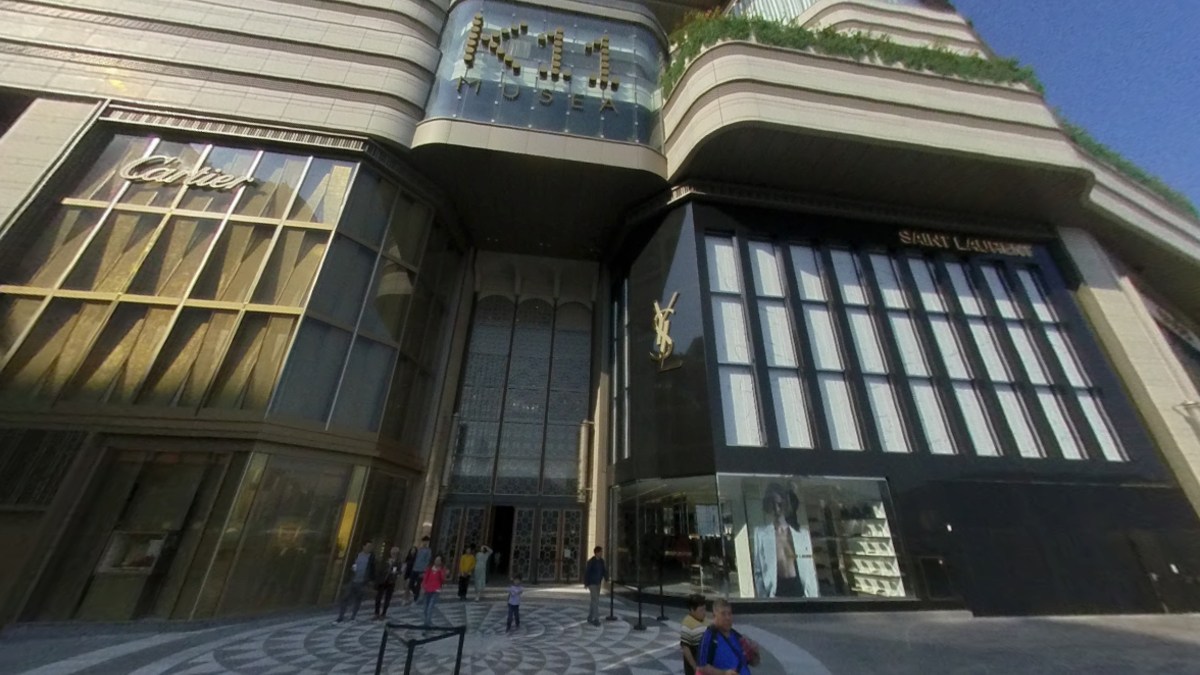[ad_1]
Hopes for quarantine-free travel from Hong Kong to mainland China were dampened by a recent virus outbreak centered in a restaurant in Kowloon’s Tsim Sha Tsui.
At least 30 people, who worked or dined at a restaurant called Mr. Ming’s Chinese Dining, in luxury shopping mall K11 Musea, were infected or tested positive preliminarily in the past few days, Chuang Shuk-kwan, the head of the communicable diseases branch at the Center for Health Protection said at a media briefing on Friday.
A cleaner, who was responsible for clearing tables at the restaurant, developed a cough on February 18 and could have spread the coronavirus to his colleagues and the restaurant’s customers during the lunch hour on February 19, Chuang said.
The man could be a “super-spreader†and his condition remained critical, she said.
“It’s possible that he’s a super-spreader, but we can never confirm this fact. We’re tracing the other customers in order not to miss anyone who might be infected,†she said.
A total of 76 customers who dined in the restaurant on February 19 would be sent to quarantine centers if they had not tested positive, she said. As the infected customers mainly sat at eight tables that were close to each other, it was more likely that they were infected by the respiratory droplets of the coughing cleaner, rather than the objects he touched, she added.
The Center for Health Protection said a total of 24 Covid cases, including six imported ones and 18 local infections, were recorded on Thursday. Of the local cases, one was untraceable, involving a 59-year-old man who lived in Lok Man House at Lok Fu Estate.
Lunch gatherings
More than 20 people tested positive preliminarily on Friday with seven having no known sources. These untraceable cases involved people who lived in different districts across Hong Kong. Many had recently had lunch gatherings or sporting activities with friends.
About 30-40% of local cases had no known sources and it would be good to further increase the quarantine requirements to cut off transmission chains in Hong Kong, Chuang said.
People who had close contact with a newly-identified Covid patient over the last seven days would be sent to quarantine centers for 14 days, instead of only being required to do the virus tests, she said. The 14-days would be counted from the date they met the patient, she added.
On Friday, Hong Kong’s vaccination program kicked off with several thousand people receiving the Sinovac jabs at five vaccination centers and 18 clinics under the Hospital Authority. They were among the 70,000 people who on Tuesday snapped up all the available slots for vaccinations for the next two weeks.
Civil Service Secretary Patrick Nip said bookings would be open again on Monday, with another 200,000 doses available. Nip said more than 1,000 private doctors would help inoculate people with Sinovac jabs from early next week.
Three vaccination centers, in Tsueng Kwan O, Kwai Tsing and Tuen Mun that were originally due to provide shots produced by German drugmaker BioNTech, would be giving out jabs made by China’s Sinovac instead, he said.
Vaccine delayed
Originally, the first batch of one million doses of the BioNTech vaccine should have arrived in Hong Kong on Thursday. But the delivery was delayed by two days due to some export procedures.
Nip said about 700,000 doses of BioNTech vaccine would be sent to Hong Kong on Saturday. However, media reports said some of these products would then be redirected to Macau.
Allen Shi Lop-tak, the President of the Chinese Manufacturers’ Association of Hong Kong, wrote in an article on Friday saying the mainland would only reopen its border with Hong Kong if the latter could reduce the number of local infections per day to single digits. He said Beijing would also require that all cross-border travelers be vaccinated.
Shi said not many cross-border travelers could be inoculated in the short term as they were not in priority groups.
Shi said Hong Kong should form “travel bubbles†with Macau and the mainland so travelers with negative test certificates would be quarantined seven days only, instead of 14 days, after arriving at the two places. He said he hoped that all vaccinated people should be allowed to go to the mainland freely as early as possible.
However, Hong Kong officials and medical experts were more conservative about the progress of the border reopening.
Chief Secretary Matthew Cheung said on February 13 that the government would talk to the mainland about the border reopening only if the number of local infections in Hong Kong could stay below 10 for some time.
‘Herd immunity’
Chief Executive Carrie Lam on Tuesday urged the public to get jabs as early as possible and help accelerate the progress of achieving full-scale class resumption and quarantine-free travel.
Leung Chi-chiu, chairman of the Medical Association’s advisory committee on communicable diseases, said it was hard to predict when Hong Kong would achieve “herd immunity†as most of the pre-ordered jabs would be delivered in autumn. Leung said Hong Kong should not put all its hopes on vaccinations, but continue to implement strict anti-pandemic rules.
An unnamed government official told media on Wednesday that Hong Kong’s economy would probably grow by 3.3-5.5% for 2021, compared with a 6.1% contraction last year. The official said the forecast was made on an assumption that people would be allowed to travel freely between Hong Kong and the mainland in the second half of this year.
He added that it would then take some time for Hong Kong’s tourism sector to recover later this year.
[ad_2]
Source link














